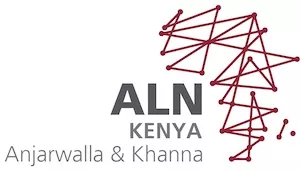- within Employment and HR, Antitrust/Competition Law and Transport topic(s)
On 29 June 2020, the Director of Occupational Safety and Health Services (DOSH) issued an Advisory on return to work requirements to be implemented at all workplaces to ensure that employees returning to work are safe and healthy and that the COVID-19 virus is mitigated from spreading in the workplace.
Whilst the Advisory is not legally binding, its provisions are based on certain requirements under the Occupational Safety and Health Act, 2007 (OSHA) and the Work Injury Benefits Act, 2007 (WIBA) which are legally binding. It is therefore important for employers to comply with the proposed measures in order to avoid the fines and penalties that could arise under those Acts.
The Advisory refers to a ''reopening date'' that will be announced by the Government through the Ministry of Health or by any other authorised authority. There is therefore no clarity on when this will be as many businesses have already reopened in recent weeks while others did not shut down at all. Our understanding of this term is that it will be the date the Government finds it fit for businesses to fully return to normal.
We summarise the obligations of employers under the Advisory below:
A. Policies
Workplace readiness statements
- Workplace readiness policy statement: Develop
workplace readiness policy statements.
The policy should address all aspects of COVID-19 including how they plan to mitigate and prevent the spread of the disease at the workplace and how they will deal with cases of infection. A summary of the policy must also be submitted to DOSH within thirty (30) days of the Reopening date; - Safe work from home protocols: Identify workers
who can still work from home, document those services and have such
workers continue to work from home.
Where employees continue working from home, issue specific protocols on safe working from home and clearly communicate the employee's specific legitimate daily, weekly or monthly expectations and deliverables; and - Provision of transport: Where possible employers should provide transportation to and from work for their employees.
Safety and health audits
- Risk assessment report: Prepare and submit a safety and health risk assessment report to DOSH within thirty (30) days from the Reopening date. The report should include all work activities under the control of the employer that would expose employees to the risk of infection and the preventive measures taken;
- Health & safety audit: Ensure that a safety and health audit is conducted by a safety and health advisor within thirty (30) days of the Reopening date. The Post COVID-19 Initial Safety and Health Audit Report must be submitted to DOSH. The audit should be conducted by approved safety and health advisors whose details should be obtained from DOSH.
- Employers without a certificate of registration not
allowed to reopen: Employers without a certificate of
registration will not be allowed to reopen.
Employers who have not already registered their workplaces with DOSH will be required to apply for registration before opening. The application or registration is now required to include a self-assessment on COVID-19 preparedness at the time of application for registration. Workplaces that already have valid registrations and certificates are exempt from this requirement.
B. Testing and Reporting
- Testing of employees: Employers to test all
employees returning to work on or before the Reopening date.
All employees must attend a medical examination to be undertaken by any medical practitioner registered by the Medical Practitioners and Dentists Board and obtain a certificate of fitness where applicable and every workplace shall be required to conduct health risk assessments. An employee can be tested at a health facility that offers COVID-19 testing. The cost varies from place to place, approximately KES 10,000 (approx. USD 90), with results taking up to 48 hours. We understand that this proposal applies to all employees whether or not they have been working remotely or are already back at work. Given the hardships faced by so many businesses, we expect there will be pushback on this as the testing cost for many employers will be prohibitive.
- Reporting positive cases: Employees are required to inform their employer if they are infected or suspect that they are infected with COVID-19 and doctors are required to report to DOSH within 14 days of diagnosing a positive case.
C. Maintenance of Insurance Policy
- Employers are required to obtain and maintain an insurance policy with a registered insurer in respect of any liability that they may incur under WIBA. The policy must explicitly confirm that all occupational diseases and confirmed occupational exposures to COVID-19 are covered under the policy.
D. Others
- No discrimination of an employee based on their COVID-19 status;
- Employers and employees above the age of 60 and with pre-existing conditions such as respiratory diseases, diabetes etc. to work together and come up with measures to ensure their health and safety at the workplace;
- Discuss how COVID-19 has affected employees' working and social life and ask what employers can do to alleviate the impact of COVID-19 on the employees. Where possible, link affected employees to a mental support program; and
- Provide and enforce the use of face masks at the workplace. Another cost for employers to bear.
E. Penalties
As mentioned above, the guidelines under the Advisory are linked to various requirements under OSHA and WIBA which contain various penalties for non-compliance. We have set out below some of these penalties for non-compliance against the various provisions of the Advisory:
- Requirement to undertake the medical examination of employees: fine not exceeding KES 100,000 (approx. USD 930) or to imprisonment for a term not exceeding 3 months (or both);
- Failure to undertake health audits: fine of KES. 500,000 (approx. USD 4,700) and/or imprisonment for a term not exceeding 2 years;
- Failure to prepare a safety and health policy statement is an offence under OSHA: fine not exceeding KES 300,000 (approx. USD 2,800) and/or imprisonment for a term not exceeding 3 months;
- Discrimination of employees: fine not exceeding KES 100,000 (approx. USD 930) and/or imprisonment for a term not exceeding 3 months; and
- Failure to send a copy of a risk assessment report to the DOSH and to register the workplace: fine of KES 500,000 (approx. USD 4,700) and/or imprisonment to a term not exceeding 6 months.
We expect there will be an outcry from many employers on some of the requirements under the Advisory (such as the testing of all employees) but in terms of the other aspects of the Advisory which fall within the existing framework of OSHA and WIBA, it is important that employers begin the preparation of the policies and reports referred to in the Advisory.
A copy of the Advisory is available here.
The content of this article is intended to provide a general guide to the subject matter. Specialist advice should be sought about your specific circumstances.



